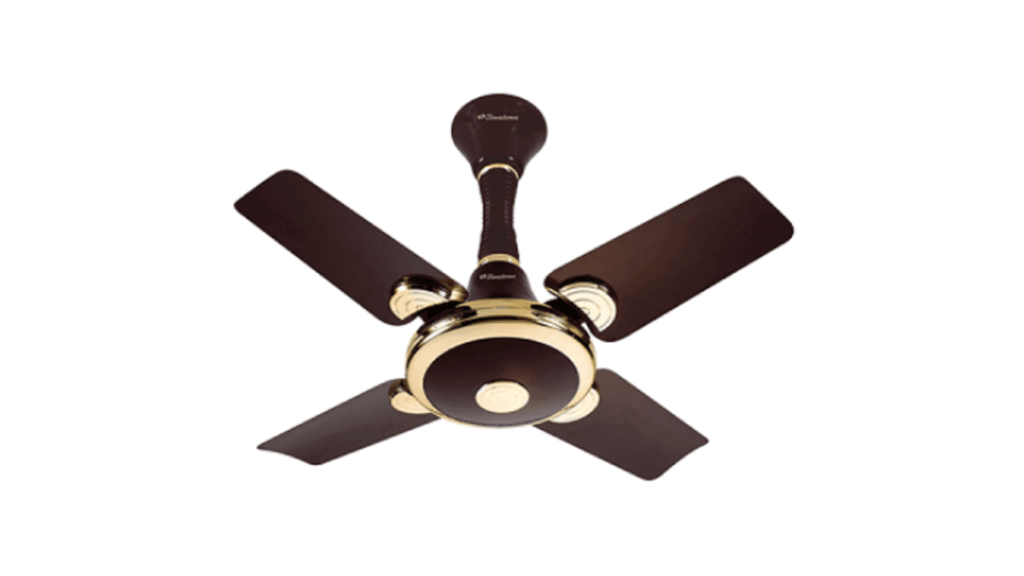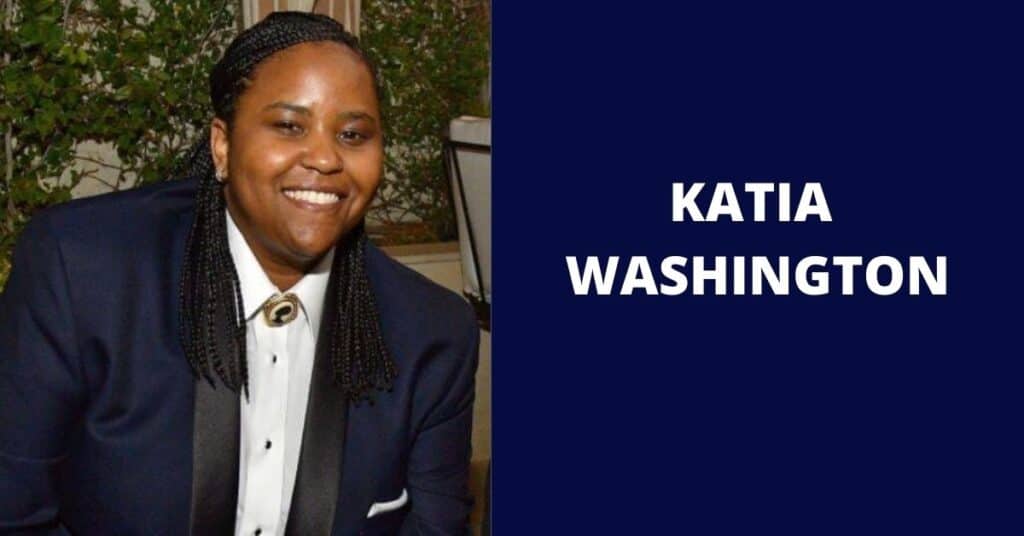Ceiling fans are a popular home appliance in Nigeria, used to cool down a room or space by circulating air. The price of ceiling fans in Nigeria can vary widely depending on various factors such as the brand, quality, size, features, and where you purchase them.
In general, the average price range for a basic ceiling fan in Nigeria can start from around 10,000 Naira to 30,000 Naira (approximately 25 to 75 USD). This price range can increase significantly for higher-end models that come with additional features such as remote control, lighting options, and energy efficiency capabilities.
Popular brands of ceiling fans in Nigeria include the likes of Polystar, Binatone, and Century, among others. The cost of ceiling fans can also vary depending on where you purchase them, with options including physical stores and online retailers.
Also, check out Lenovo Prices in Nigeria.
It’s worth noting that the cost of ceiling fans is not the only expense associated with owning them. Additional costs to consider include installation fees, maintenance costs, and energy costs. However, despite these extra expenses, ceiling fans remain an affordable and effective option for cooling down your home or workspace in Nigeria.
Types of ceiling fans
There are several types of ceiling fans available on the market, each with its own unique design, features, and benefits. Here are some of the most common types of ceiling fans:
Standard Ceiling Fans
These are the most basic type of ceiling fans and are usually available in three to five-blade configurations. They are typically made of materials like plastic, metal, or wood and can be found in a range of styles, colors, and finishes.
Low Profile Ceiling Fans
Also known as “hugger” fans, these are designed for rooms with low ceilings. They are mounted flush to the ceiling and have a shorter downrod or no downrod at all, allowing them to be installed in spaces with limited overhead clearance.
Energy-Efficient Ceiling Fans
These fans are designed to save energy and reduce electricity bills. They typically feature energy-saving motors, high-performance blades, and aerodynamic designs to help move air more efficiently.
Dual Motor Ceiling Fans
These are unique ceiling fans that feature two motors and sets of blades. They are designed for larger rooms and can move more air than standard ceiling fans, making them ideal for spaces like living rooms, dining rooms, and great rooms.
Outdoor Ceiling Fans
These fans are designed to be used in outdoor areas like patios, decks, and porches. They are usually made of materials that can withstand exposure to the elements, such as moisture-resistant blades and rust-resistant finishes.
Remote Control Ceiling Fans
These fans come with remote controls that allow you to adjust the speed, direction, and lighting of the fan without having to get up from your seat.
Smart Ceiling Fans
These are high-tech ceiling fans that can be controlled through a mobile app, voice commands, or other smart home devices. They often feature additional functions like LED lighting and air purification systems.
Each of these types of ceiling fans has its own advantages and disadvantages, depending on your specific needs and preferences.
Price of Ceiling Fans in Nigeria
The price of ceiling fans in Nigeria can vary widely depending on various factors such as the brand, quality, size, features, and where you purchase them. In general, the average price range for a basic ceiling fan in Nigeria can start from around 10,000 Naira to 30,000 Naira (approximately 25 to 75 USD).
Higher-end models with additional features such as remote control, lighting options, and energy efficiency capabilities can cost between 40,000 Naira to 100,000 Naira (approximately 100 to 250 USD) or more.
It’s important to note that the cost of ceiling fans can also vary depending on where you purchase them. Online retailers often offer competitive prices and deals, while physical stores may offer more personalized services and installation options for an additional cost.
In addition to the cost of the fan itself, it’s also important to consider the cost of installation, maintenance, and energy consumption. Professional installation services can cost between 5,000 to 15,000 Naira (approximately 12 to 37 USD) or more, depending on the complexity of the installation.
Overall, ceiling fans are an affordable and effective option for cooling down your home or workspace in Nigeria, and there are many options available to fit different budgets and preferences.
Also, check out Oppo A53 Prices in Nigeria.
Factors influencing ceiling fan price
The price of a ceiling fan can be influenced by several factors, including:
Brand
Ceiling fans from popular and reputable brands are often priced higher than those from lesser-known brands.
Quality
High-quality ceiling fans that are made with durable materials and feature advanced technologies such as energy-efficient motors or noise-reducing features can cost more than basic models.
Size
Ceiling fans come in different sizes, and larger fans with more blades and more powerful motors are often more expensive than smaller ones.
Features
Additional features such as remote control, lighting, and energy-saving capabilities can increase the price of a ceiling fan.
Style and design
The design and style of a ceiling fan can also affect its price, with more intricate or unique designs often costing more than basic models.
Where you buy it
The price of a ceiling fan can also vary depending on where you purchase it. Online retailers may offer lower prices and deals, while physical stores may charge more for personalized services such as installation.
Currency exchange rates
For ceiling fans that are imported, fluctuations in currency exchange rates can also affect their price.
Overall, the price of a ceiling fan is influenced by several factors, and it’s important to consider these factors when selecting a fan that meets your needs and budget.
Where to buy ceiling fans?
Ceiling fans can be purchased from a variety of retailers in Nigeria, including:
Online retailers
There are many online retailers that offer a wide selection of ceiling fans at competitive prices, such as Jumia, Konga, and Jiji.
Physical stores
Home improvement stores such as Game, Shoprite, and Spar, as well as specialty lighting and appliance stores, often carry a range of ceiling fans.
Electrical supply stores
Stores that specialize in electrical supplies and equipment may also carry ceiling fans, such as Cutix Electrical Store and Karmod Nigeria.
Fan manufacturers and distributors
Some ceiling fan brands have their own showrooms or distributors where you can purchase their products directly, such as Polystar, Nexus, and Binatone.
When deciding where to buy a ceiling fan, consider factors such as price, availability, and customer service. Online retailers often offer competitive prices and convenient delivery options, while physical stores may provide more personalized services such as installation and maintenance.
It’s important to research different options and compare prices and features to find the best ceiling fan for your needs and budget.
Maintenance costs
The maintenance costs for a ceiling fan can vary depending on several factors, such as the frequency of use, the quality of the fan, and the environment in which it operates. Here are some maintenance costs to consider:
Cleaning
Regular cleaning is important to maintain the efficiency and longevity of your ceiling fan. You can clean the blades, motor housing, and other components of the fan using a soft cloth or a vacuum cleaner.
Depending on how often you use your fan and the environment it operates in, you may need to clean it once a month or more.
Replacement parts
Over time, parts of the ceiling fan may wear out or break, such as the blades, motor, or mounting hardware. Replacement parts can range in price depending on the quality and brand of the fan.
Repairs
In addition to replacement parts, repairs may be necessary if the fan becomes damaged or malfunctions. Repair costs can vary depending on the extent of the damage and the complexity of the repair.
Energy costs
Ceiling fans can help reduce energy costs compared to air conditioning, but they still use electricity. You should factor in the cost of electricity when using your ceiling fan.
Overall, the maintenance costs for a ceiling fan can be relatively low compared to other cooling options, especially if you take care of it and perform regular maintenance.
Regular cleaning and inspections can help prevent more costly repairs in the future. It’s also important to choose a high-quality ceiling fan that is designed to last and be reliable.
Conclusion
Ceiling fans are an effective and affordable way to cool and circulate air in homes and workplaces in Nigeria.
When shopping for a ceiling fan, consider factors such as brand, quality, size, features, and price, as well as the cost of installation, maintenance, and energy use.
There are many options available, both online and in physical stores, so it’s important to do your research and compare prices and features to find the best ceiling fan for your needs and budget.
With proper care and maintenance, a ceiling fan can provide reliable cooling and air circulation for many years, making it a worthwhile investment.
Before you go, check out PS Vita Prices in Nigeria.







